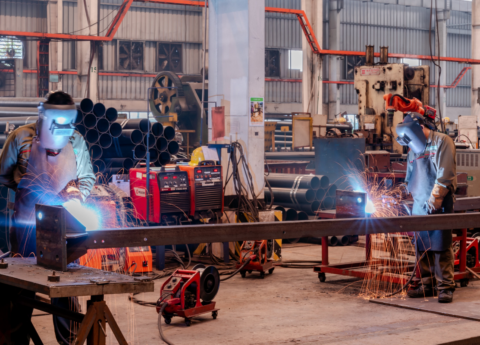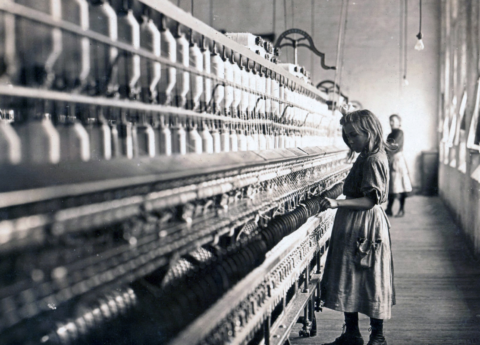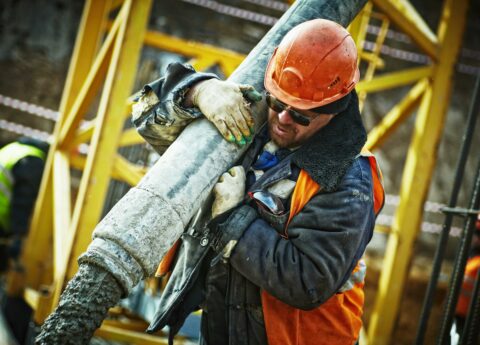Starting last year, as COVID-19 led people to social distance and quarantine, a new term entered the lexicon: “essential worker.” Though everyday working people have always been the key to a functioning society and economy, the crisis laid bare their vital roles like never before.
That makes this Labor Day an especially important time to ask how workers are faring and consider what we are doing to support them.
The coronavirus pandemic tore a gaping hole in the economy. In just a month last year, 1 out of every 7 jobs in Kentucky disappeared. It was worse than that in certain industries. We saw layoffs of nearly half of all workers in the leisure and hospitality industry including restaurants and hotels. Particularly hard hit were Black and women workers who are more likely to be in low-wage service jobs due to historic patterns of discrimination.
Thanks to vaccinations and aggressive federal relief, Kentuckians have returned to work since the worst point of the crisis in massive numbers. We’ve seen employment in Kentucky grow by nearly 200,000 jobs, and the number of people receiving unemployment benefits has fallen by over 80%.
But because the job loss was so enormous and the road to ending the pandemic is so rocky, we still have a long way to go. Kentucky is nearly 100,000 jobs short of just getting back to the employment we had pre-COVID.
To create the economy workers need, there are barriers we must overcome.
The Delta variant is a new, deadly wrench in the recovery. It is leading to people restricting travel and other spending again, putting those with health conditions at risk, and increasing caretaking workloads from stay-at-home requirements due to illness and quarantine. Vaccinations, masks and other protections are key to getting the virus under control.
Workers face other roadblocks. Housing instability is a major challenge as layoffs led to Kentucky workers falling behind on rent, and the Supreme Court just stopped an administrative extension of the eviction moratorium. Affordable child care was already hard to find due to state funding cuts to local centers, and the problem has been made worse by volatile revenue for centers during the pandemic. Many Kentuckians also strain to afford reliable transportation on inadequate paychecks.
Some of these problems can be addressed with better job quality. As COVID led people to take stock of their lives, workers are rightfully resisting just going back to their old low-wage jobs with few benefits and undesirable working conditions. They are asking for living wages and searching for better opportunities. Those employers beginning to make positive adjustments in response find it is good for businesses as well as for employees.
Thankfully the overall federal response to economic hardship has been robust so far, especially with the passage of the American Rescue Plan Act in the spring. Through stimulus checks, supplemental unemployment benefits, increased food assistance, a bigger child tax credit and more, poverty has fallen by 68% in Kentucky this year.
But with Delta wreaking havoc in communities, we should be extending that relief and doing everything we can do get dollars out the door for needs like rental assistance. And to get to a recovery that is strong and equitable — one that creates more good jobs and addresses the burdensome costs workers face for needs like prescription drugs, childcare and education — we need bold new federal action.
That’s where the landmark budget proposal now moving through Congress comes in. The Build Back Better plan includes major new investments in workers that reflect their contributions to the economy. The plan will expand preschool and childcare, make higher education and health care more affordable, provide paid family leave, extend the larger child tax credit, create jobs tackling climate change and much more. The budget also includes elements of the PRO Act, which would remove barriers that prevent workers from forming unions to bargain for better wages and working conditions.
The coronavirus crisis has been a long trial for Kentucky workers and their families. We must double down on helping them survive what we hope is the final major phase of the pandemic.
And we should act now to build a post-pandemic economy where all Kentuckians can thrive. Let’s make the well-being of workers as essential as they are to the rest of us.
This column ran in the River City News on August 31, the State-Journal on September 1, and the Courier-Journal on September 5, 2021.



